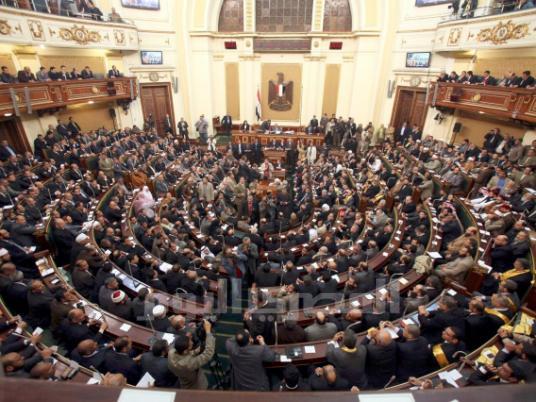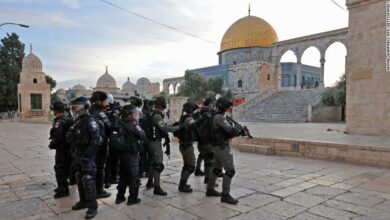
Amid deep divisions between Islamists and secularists over drafting Egypt’s new constitution, Parliament's two chambers convened on Saturday for the first time to discuss the criteria for electing the constituent assembly's 100 members.
The makeup of the assembly that will write the constitution has been a contentious point, with secular-leaning groups and Christians fearing the Islamist-dominated Parliament may pack it with conservative thinkers.
Cramming the numerous steps into a tight timetable, critics say, would make it almost impossible for an extensive public debate to be held on the new constitution.
The new constitution will replace the one that helped keep Hosni Mubarak in power for three decades.
According to Article 60 of the Constitutional Declaration issued in March 2011, the ruling Supreme Council of the Armed Forces must invite the Parliament's upper and lower houses to elect a constituent assembly to draft the constitution within a maximum of six months of its formation. The constitution should then be put to nationwide referendum within 15 days.
Saturday's meeting is attended by elected members of both houses, who total more than 678.
In the session, Saad al-Katatny, speaker of the People's Assembly, said the constituent assembly should encompass all factions in society and not be aligned to a changeable parliamentary majority.
Islamists — the Muslim Brotherhood and Salafis — make up 70 percent of the People's Assembly and more than 80 percent of the upper house, the Shura Council.
MP Hussein Ibrahim, the head of Freedom and Justice Party's bloc in the People’s Assembly, said that his party has proposed a draft bill for the formation of the constituent assembly that states that 40 members be from Parliament — 28 from the People's Assembly and 12 from the Shura Council — while 30 be public figures and 30 be from syndicates and other state institutions.
The proposal, according to Ibrahim, emphasizes the need for competence, diversity and proportional representation of all categories in society and of universities, syndicates, religious institutions, labor unions and NGOs.
However, the ultra conservative Nour Party along with Jama'a al-Islamiya's Construction and Development Party proposed that the selection of the 100-strong assembly be dominated by the elected members of the Parliament's two chambers.
MP Sayed Moustafa, the head of Nour Party's bloc in the People’s Assembly, said that the constituent assembly should reflect the people’s choices in the elections and the parliamentary majority should be allowed to dominate it.
On Saturday the party proposed on its page on Facebook that the constituent assembly contain 60 MPs from both chambers, 20 members from syndicates and 20 public figures.
MP Mohamed al-Soghaiyer, the head of the Jama'a al-Islamiya's bloc in the People’s Assembly, proposed that the constituent assembly have 70 percent of its members from the elected MPs.
The Constitutional Declaration says the state religion is Islam and the principle of Islamic Sharia law is the main source of legislation.
However, some ultra-conservative Muslims have called for the article to be changed to read that Islamic law is the only source of legislation — a proposal opposed by liberals and moderate Islamists.
Liberal groups have expressed fears that the Islamist parliamentary majority will produce a constituent assembly dominated by Islamists, and have demanded that only 20 percent of the panel come from parliament.
MP Abu al-Ezz al-Hariri, the head of the Socialist Popular Alliance Party’s party bloc in the People’s Assembly, has said that constituent assembly shouldn’t be dominated by elected MPs but reflect the diversity of Egyptian society.




